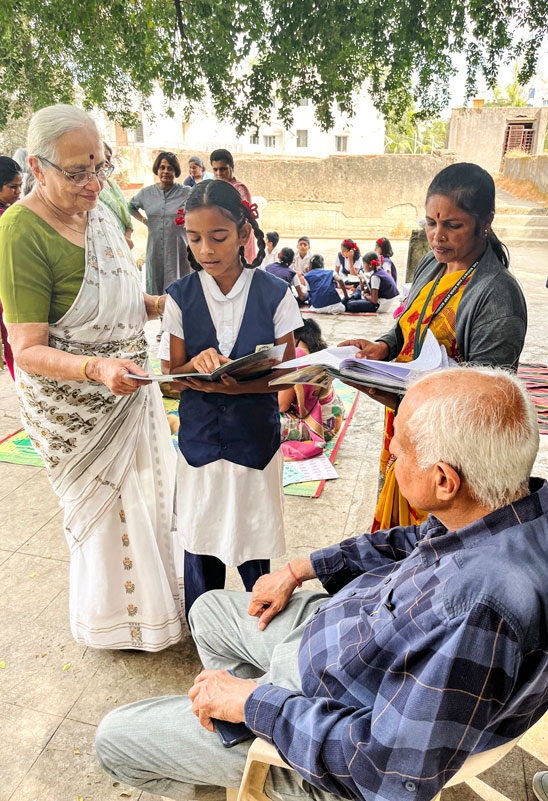The Warkari bhakti movement has been part of Hindu culture in Maharashtra since the 13th century. It includes worship of Vithoba, identified with Krishna at the ancient temple in Pandharpur.
A pilgrimage (referred to as wari) to the temple culminating on the Ekadashi day in the Hindu month of Ashada (June-July) is the peak religious occasion for the Warkaris. Millions of devotees from across Maharashtra and northern Karnataka join the palkis (palanquin) taken on a procession by the Warkaris from Alandi (associated with Sant Dnyaneshwar) and Dehu (with Sant Tukaram), to reach the Pandharpur Vithoba temple on the Ekadashi day.

The children of this religiously inclined community are also groomed to follow the tradition from a young age. Greater emphasis is laid on learning bhajans, sangeet and musical instruments at residential ‘sansthas’. But they do attend the local zilla parishad schools for formal education. To improve their learning experience the Doorstep School, a Pune-based NGO, is offering after-school classes in functional reading, writing and arithmetic on the school premises.
In December RC Pune Sports City, RID 3131, tied up with the NGO to support the training of 25 teachers in Alandi. They will, in turn, impart functional literacy to 150 students of the Warkari community. “Nitin Karia, a long-standing donor and well-wisher of our club has donated ₹6 lakh to our trust for this project,” says club member Sandesh Savant.
The teachers are trained to teach lessons in basic hygiene, nutrition, sanitation and interactive skills for the students, besides the functional literacy classes. “The children will undergo 120 sessions over six months. By then, they will be well-versed in Marathi reading, writing and basic numeric operations such as addition, subtraction, division and multiplication,” he says. Each session will be for 90 minutes. “The classes may not be regular because the children would also have to participate in festivals and other rituals as part of the tradition. They have to balance academics with their daily rituals and their day starts as early as 4am,” adds Savant.
The Covid pandemic and its aftermath has affected the children’s learning abilities. Many of them are lagging behind and show disinterest in academics, he explains. “It is however heartening to see that they look forward to these sessions as they provide personal attention to each child.” The club members visit the sessions from time-to-time and engage the children in fun activities.
Fifty students aged 9–14 are undergoing these classes presently in Alandi. They are divided into groups being handled by 14 specially trained teachers. Flash cards and other teaching aids are used to increase the learning impact.
The club has plans to continue the project with the help of a GG with international partner, RC Douai-Sud, France. “We have earlier executed a couple of Happy School projects with them,” says Savant.
Club president Kennedy Samuel, Brij Sethi and the club’s literacy committee chair Mona Savant are deeply committed to this project. The sessions will be a hugely beneficial as it provides holistic lessons to the children and sustains their interest in academics especially during their formative years, notes Samuel.






